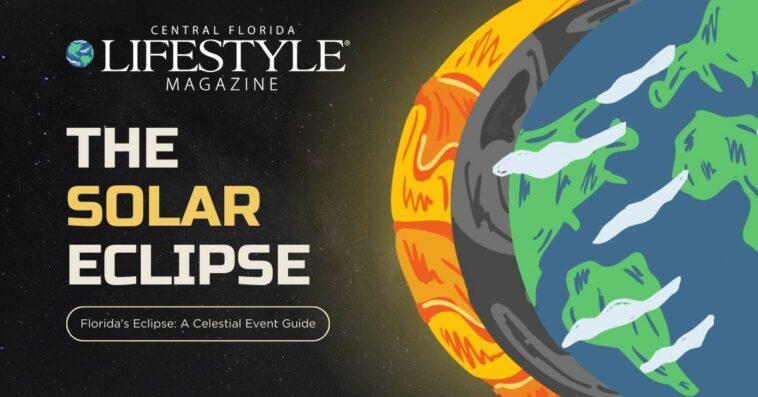On April 8, 2024, Florida will play host to an extraordinary astronomical phenomenon: a partial solar eclipse. This event is part of a larger celestial showcase sweeping across North America, captivating sky-watchers and astronomy enthusiasts alike. While Florida may not witness the total eclipse, the state is perfectly positioned to offer a stunning view of this rare partial solar eclipse, with coverage ranging from 54% to 82% across different locations.
Understanding the Eclipse
A solar eclipse occurs when the moon passes between the Earth and the sun, temporarily obscuring the sun’s light. The upcoming eclipse in April 2024 is particularly notable as it spans across North America, from Mexico to Newfoundland. For Floridians, this means a unique opportunity to witness the moon’s shadow partially covering the sun, creating a spectacular celestial event.
Where and When to Watch
The eclipse’s visibility in Florida will vary depending on your location within the state. Northern areas like Pensacola and Pineville will enjoy the highest coverage, with more than 80% of the sun being obscured. In contrast, southern locales such as Miami and the Florida Keys will see around 55% coverage. The eclipse will commence around 1:35 p.m. EDT, reaching its maximum at approximately 2:55 p.m. This timing offers an excellent midday spectacle for viewers across the state.
Best Viewing Locations in Florida
Several prime spots across Florida are gearing up for the eclipse, offering public viewing events and educational programs:
- Orlando Science Center, Orlando: Known for its engaging science exhibits, the center will host a viewing party complete with expert commentary and telescopes.
- Kennedy Space Center, Merritt Island: Offering an educational and inspiring backdrop, the center plans a Partial Eclipse and Earth Day Celebration, combining astronomical observation with environmental awareness.
- Mirasol Park, Palm Beach Gardens: This local park is organizing a community event, “There Goes the Sun: Solar Eclipse Viewing,” ideal for families and local residents.
- Cox Science Center and Aquarium, West Palm Beach: Visitors can enjoy the eclipse through special telescopic setups and participate in interactive science exhibits.
- Calusa Nature Center and Planetarium, Fort Myers: This nature center will provide a unique natural setting for eclipse viewing, alongside educational presentations.
Viewing Safety
The importance of protecting your eyes while observing the solar eclipse cannot be overstated. Directly viewing the sun without proper protection can lead to serious eye damage. Solar eclipse glasses, which are equipped with special-purpose solar filters, are essential for safe viewing. Ensure your glasses meet the international safety standard (ISO 12312-2) before the event. Local libraries, schools, and astronomy clubs often distribute these glasses for free or at a nominal cost.
Educational Opportunities and Community Engagement
Beyond the spectacle itself, the solar eclipse presents valuable educational opportunities. Schools and community centers across Florida are leveraging the event to teach about solar physics, the mechanics of eclipses, and the importance of scientific observation. These events often feature astronomers and educators who can provide insights into the eclipse’s significance and the broader context of our place in the solar system.
Preparing for the Event
To fully enjoy the solar eclipse experience, preparation is key. Here are some tips to ensure a memorable viewing:
- Secure proper viewing equipment: Obtain ISO-certified solar eclipse glasses well in advance to avoid last-minute shortages.
- Choose your viewing location wisely: Research the best spots in your area for eclipse visibility and plan to arrive early to secure a good position.
- Check the weather forecast: Clear skies are crucial for a good view, so be prepared to travel if cloudy weather threatens your chosen location.
- Educate yourself and others: Learn about the eclipse and share your knowledge with friends and family to enhance the collective experience.
In conclusion, the 2024 solar eclipse is a not-to-be-missed event for Floridians and visitors alike. With proper preparation and a sense of adventure, viewers across the state can enjoy a safe and spectacular view of this celestial marvel. Whether you’re an avid astronomer or a curious observer, the partial solar eclipse in Florida offers a unique opportunity to connect with the cosmos and witness the awe-inspiring beauty of our universe in motion.








Comments